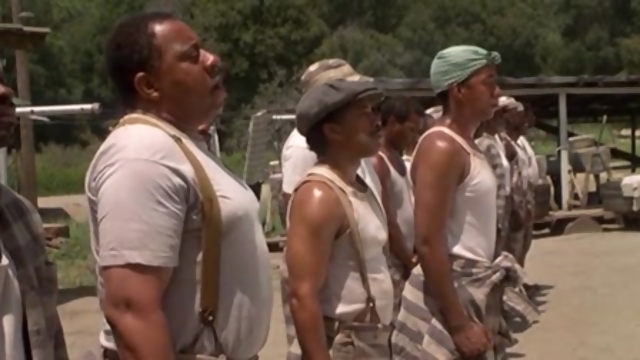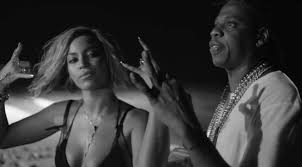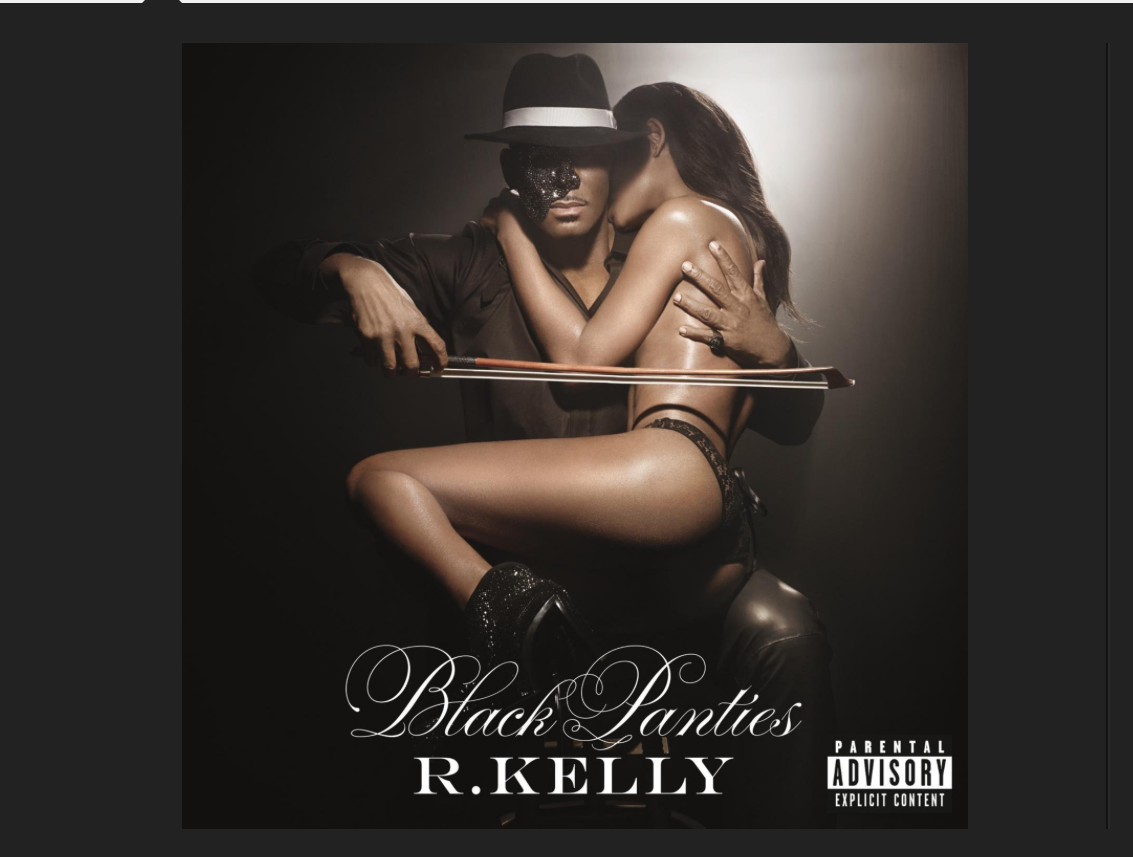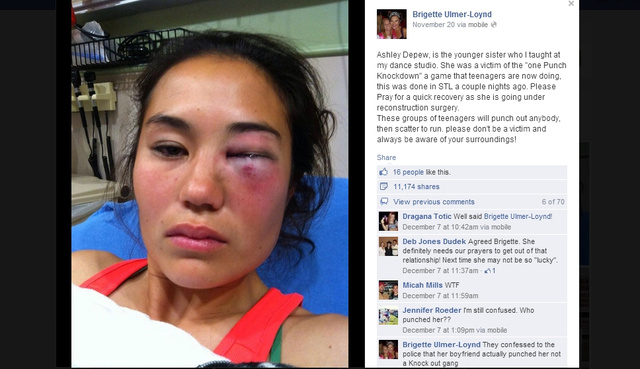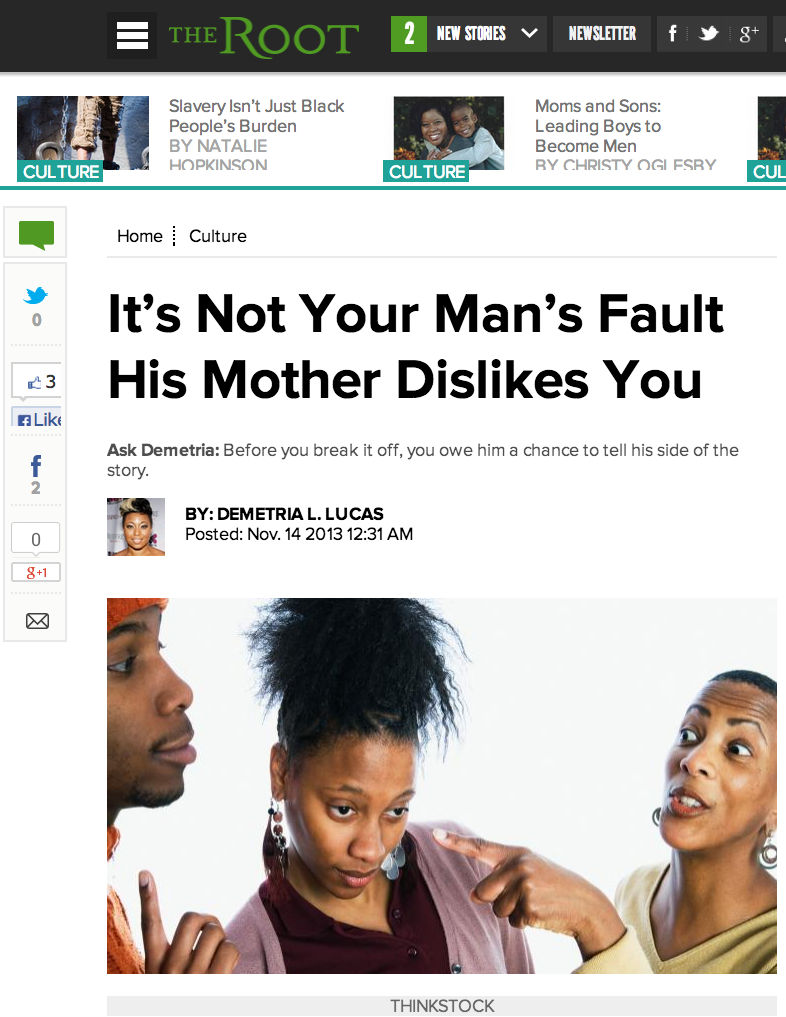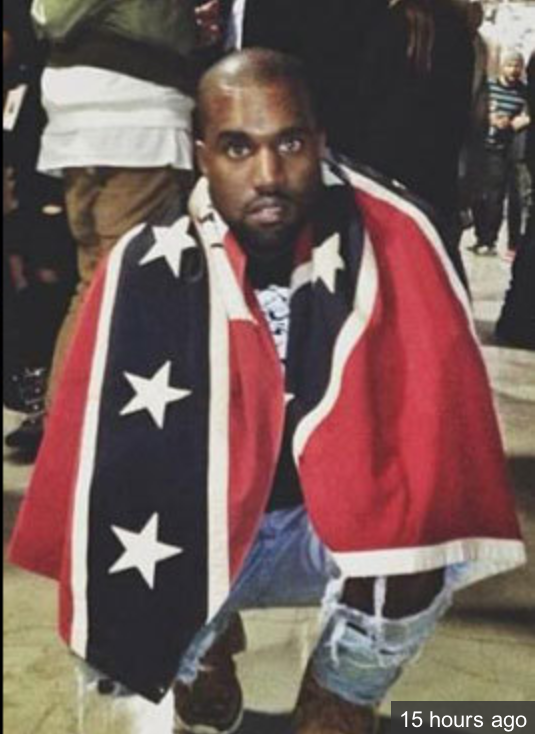A couple months ago, a guy wrote in saying that he had found his girlfriend’s birth control pills in the trash.
Wifey and me stop using latex a while ago. She is on the pill. Today, I go to dump the bathroom trash. I hear rattling. What do I find? Pills! She ain't taking them. I'm pissed the f**k off. I just got back on my feet and I don't want kids until we’re married. This s**t is grimey forreal!
I got a pocket full of pills. I'm so pissed that I walked up and down the park. I just want to throw these s**ts at her and make her explain what's up. She always on some dumb s**t. Always tryna out smart a [man]. The way I feel right now I think I better sleep at my cousin's house tonight. I don't want to do anything I’ll regret later.
I told him I thought staying by his cousin was a great idea. I also suggested he give her the benefit of the doubt instead of confronting her with accusations. Maybe something was wrong with that batch and she tossed them to start on another. She was a good enough woman for him that he was going to marry her, so it was best not to jump to conclusions and talk to her first. Maybe there was a logical explanation for this?
Welp. He took my advice.
I asked what up she say they was making her sick I say why not change to a different brand she look at me with the stupids. I say, “ok how long?” She didn't want to answer. I say “Come on, bae. Talk to me. She says, “I AM 13 WEEKS PREGNANT!! F**k, yo. She really did me like that?
I don't hit females because I'm stomping any [person] that would hit my sisters, but I swear, yo, I wanted to so bad. She ran in the bathroom and locked the door. I'm so pissed all I could do is cry I want to snap her f**king neck. I can’t believe she did me this way. This is why a [man] can't be trusting these females.
He’s 25, said he just got his finances in order. He was paying for the birth control pills because he didn’t want to use condoms. She agreed to take them.
My response:
Get out of the house. You’re right, you can’t hit her.
I am so sorry this happened to you. Unfortunately, your options are really limited here.
You're having a kid. I know you don't like the idea, or even her, right now, but you need to make the best of this situation.
In time, accept what's happening, try to mend this relationship (I don't suggest you stay, even "for the kid") and start saving up to support the kid and also preparing to be a father. Not what you want, but it's not the kid's fault and he/she didn't ask to be here.
This will seem like going the next mile to some, but I'll say it anyway: the only surefire way to prevent unwanted pregnancies (and avoid STIs), is not to have sex. Nobody wants to hear that because sex is good, but it's true.
That said, I've read your other responses and I'm glad you came here to vent instead of going off. You're pissed and have every right to be. But when you calm down, you're going to have to figure your life out and find a way to manage your feelings about this kid and your ex/girl so that you can raise the child and manage a decent relationship with the kid's mom for the next 18.
At some point, it came out that her mother recently passed away and she felt like she had no family, so she wanted a baby. He—and I—sympathized with her grief. His argument was that his mother is a grief counselor and his lady saw his Mom once a week and could have easily talked to her about her feelings, rather than tricking him into having a child.
I agreed with him that her actions were entirely grimey. Your man agrees to put his money where his mouth is about not wanting a kid and agrees to pay for your birth control pills and you agree to take them? You give him a head’s up if you decide to stop and if you want a child.
He wrote back in the same night.
I had to turn off my phone she blowing me up, asking if I want her to get rid of it. I said, “that ain't got s**t to do with me. You didn't ask before you did that.”
I ain't that much older than her. At 21, I had plenty of common sense. This here is the straw that broke me. I'm good off her.
I feel like a sucka. I trusted her and she lied and schemed. She is pregnant. I can't even wrap my mind around this s**t. I give her the $40.00 each month to prevent this. My dumb a** hitting OT hard tryna get her a ring and this how she do me?
My response:
Yeah. The relationship is done. Her character/common sense is broken. You just don't do that to anyone.
But you need to sort out your anger because you're stuck with her for the next 2 decades. AND you can't take out your feelings for her on the kid.
Please read my previous responses re: the child. It's not about the two of you anymore. It's about what is best for the kid -- and to be clear, that doesn't require you to be together. You do need to look out for you too on some level.
Here’s where things go more left.
UPDATE 2:
She writes in about a week later. Apparently, he posted screen shots of the questions I answered on AskFm onto his Facebook page for all his friends and family to see. Some ask the woman, “Why would you do this to XYZ?” I think it was a female cousin who wanted to have a “talking to” with her.
The woman tracks me down on AskFM thinking I’m the guy’s side-chick, but realizes that I’m, you know, a life coach.
Hello, Demetria. It took me a second to find your page. I'm not coming to start no junk, just want to tell my side of things. You don’t know me but you know of me. It's real fucked up how everybody make it seem like I got pregnant to try and trap [name redacted]. What I did was about me, not him. I was lonely and that’s on the real. I stop taking those pills because I was throwing up all the time and kept breaking out.
[Name redacted] be trying to sit round here and act like he all so damn innocent. It ain’t like we was f***ing with rubbers all the time. It was my idea to get on the pills in the first place. He was paying for them because he doesn’t like the feel of rubbers.
We be getting it in bareback all the time so what's the big deal now? And if it's such a problem, why does he say, “I want you to have my baby" every time he nut?
When I met [redacted] I was a virgin. He is the only [person] that hit this. When I found out I was pregnant I wanted to say something, but I was scared he was going to trip about me not taking the pills. But every time I was going to say something, he was busy playing Madden or hanging with his [boys.] At least if I got a baby, I won't be feeling so alone all the time.
Maybe I should have said something earlier but what I did is no worse them him taking screen shots of your responses and putting them on Facebook. So we even. I want my baby to have it's daddy, but if I got to do it by myself. Oh, well.
There’s a lot going on here. She recently lost her Mom, is lacking attention, was likely still grieving and is making bad decisions as a result. A baby is not a cure for loneliness.
But while those are valid feelings, they’re not an excuse for what she did.
This is what I told her:
It's not about ONLY you. It's about him too because he is the father of the child. If you wanted to have a baby by him and went off your BC, then he should have been informed. Period.
If the pills were making you sick, then you should have told him that you weren't going to take them and he had to use a condom.
You went off the pills because you wanted to have a baby. You knew that; he did not. There's no other way to describe that than "trapping."
It doesn't matter whose idea it was. It was an agreement between the two of you and he was not using condoms because he was under the belief that you were taking the pills to prevent pregnancy, the pills he was paying for.
No clue as to why he was saying, “I want you to have my baby.” But his actions (paying for pills) and words (saying he wants a baby) don't match. You're really young, so you may not know that that is sex-talk. I agree, he should not have said it.
I get you were scared to tell him what you did, but him playing Madden or hanging out with friends is not a valid excuse not to speak up for the about two months you knew. You only told him because he confronted you. I'm really sorry to hear that you are lonely, but deceiving your BF in order to have a baby is the not the cure for loneliness.
And actually, deceiving your BF and intentionally getting pregnant is 1000x worse than him posting screen shots and embarassing you.
Both of you are incredibly immature. You BOTH have A LOT of growing up to do before this baby arrives. Dads are not optional. Your child needs a father.
Unsurprisingly, she didn’t like my response so much.
Hold up, hunty. Yes, I made a mistake. I'm a person, it happens and I'm trying to fix it.But how if he don't want to talk about it I called him for days and he didn't even so much as pick up. I posted a belly pic on FB and tagged him in it. Then he calls me a “selfish inconsiderate b****.”
There was a lot more to it. A lot of accusations about him, and a lot of cursing at me. There was something about his cousin who had hit on her once. It was unclear whether it was while she was dating the current guy or before. She shut him down and the cousin had been bad-mouthing her ever since.
She added that she knew how much her child's father made and he didn’t need to work all the extra hours because he made good money. She didn’t put two and two together that he was trying to earn money to buy her an engagement ring.
My response:
I read all 8 of your responses this round. I'm not posting them. You don't want help, you want to embarrass your ex and/ or find a way to communicate with him since he won't talk to you. My page doesn't serve that purpose.
I won't help you make an already bad situation worse by being further messy. And your communication with your ex shouldn't be for public spectacle. Ya'll have a REAL ISSUE that needs solving. Playing back and forth here isn't it. I don't want the hits that bad.
Posting a pic of your belly on FB and tagging him, he who is pissed about this situation and currently sorting thru an AT LEAST an 18 year responsibility and more important, to embarrass him for the reasons you listed that I won't, is further evidence of how immature and irresponsible you are.
I get it was a reaction to his FB posts. That makes you BOTH immature and irresponsible. You will BOTH need to talk, put your kid first so you can BOTH raise the baby and co-parent this child. This isn't a game. There's a baby involved. You BOTH need to grow up.
Not never have I met a woman complaining about a man making too much money. It's yet another sign of your immaturity. And given the situation, aren’t you glad he works hard and pulls a decent check and OT?
I say this with love: you got to figure your life out before your kid gets here. Maybe if you stopped being so combative and cursing and calling names, someone would offer to help you FOR FREE.
UPDATE 3:
I didn't hear from her again. He wrote in about a week later to say he’d moved out of the house and in with his mother. He’d talked to an older friend of the family, a man, who told him that he had to separate his feelings for the woman from his feelings for the kid. Like it or not, he was having one and they needed to make some peace for the kid’s sake. He was talking it out with his Mom, a counselor, so he was in good hands
UPDATE 4:
A LOT of you asked about this couple. A LOT. I had no idea what happened with them. I hoped that the guy was able to take the advice that the mentor and Mom were giving and they would be able to work things out for the sake of the kid. Perhaps they wouldn’t be in a relationship, but it’s best for a kid to have two functional parents. I hoped that while they might not make it as a couple, they could make some peace with the situation and be there for the kid.
I admit, the social media games they were BOTH playing didn’t give me a lot of hope. The strong foundations on his end gave me some.
UPDATE 5:
Another week passed before I heard from him again. He wrote in to say that his Mom, while not happy with the circumstances, was happy she was getting a grandkid. He also seemed to be softening toward his ex. He said that she had some good qualities despite this incident and that while things were really screwy, he did care for her
I wished him the best, and reminded him of what his mentor said.
UPDATE 6:
I’ve got to stop expecting not to hear from folks again. The people I think I’ll never find out what happened to them are always the ones writing back with a “B, guess what?!”
Two months passed and not a peep from either of them. When I began doing updates on #skypingdad, #galagirl and #badBFF, many of you noticed the trend and wanted to know what ever happened to #pillsguy
I answered a question on AskFM about him, which went public, and apparently he still follows— I don’t really believe in coincidences— because 48 hours later, he gave an update.
(I’ve edited his letter for readability only.)
I almost got arrested about an hour ago. Before I tell about what went down, let me back up and let you know what the heat is about.
As you know me and lady ain't been vibing cause of the dumb s#@t she did. The only time I’ve been around her was when I took her to the doctor.
On Thanksgiving, my Mom fixed her a plate and tells me to take it to her. She told me I need to make sure she eating and taking care of herself. Now mind you, I’m not feeling it, but after Mama gives me the side eye, I do it.
I get over there and she’s crying and begging me to stay at least until she’s done eating. I do, but end up falling asleep.
Nothing happened, but it was like the best sleep I had in a long time. I left her at 2 the next day and my head was all f***ed up.
Tuesday, I packed some stuff and moved back [in with her]. Wait before you say something. It ain't like that. I'm just here for my princess. I want to make sure she makes it here all right.
So today, I’m playing ball. We ran two games and I tell the guys I need to go. Today’s is the lady’s birthday and I have to go to Sam’s Club to get her a cake. My cousin isn’t feeling this and gets in my face. He says I’m a “dumb a** [n-bomb] “ and I'm “p**** whipped.”
We have more words. He tells me I'm bending over backwards for a d*** sucking shone* and nobody else got the balls to tell it to my face but he will. Then he taps my chin. I warn his big a** to back off.
This [n-bomb] tells me I'm a b****, then says f*** me, that shone and my bastard a** child. After that, we go at it. I shoot him a fade**. You can talk about me, but keep my princess out of it.
I told my cousin he is dead to me. He disrespected me. Yo, he tried to pull my card, then he pulled out his phone and tried to call the police on me when he started this sh**.
Was I out of pocket to tell [my cousin] he’s dead to me? And is this situation with my lady and me a hopeless cause?
Whew.
My response:
Most reasonable folk would say your cousin was out of order. No question. He can dislike your decision to move back in with your “lady” and so it seems, work on rebuilding the relationship. But it’s your life to do with as you please. If he had some commentary for you about it, the basketball court—with others watching, no doubt—wasn’t the place to do it. Nor were the words he used to describe her, the unborn child, or you.
Based on your description, there’s nothing warranted for him to be calling the police. Not sure what else happened there (or perhaps I’m misunderstanding the meaning of “shoot the fade”? I’m assuming you fought, not that you pulled out on him. And even in that case, wouldn’t he leave before calling the police or threatening to?)
I understand why you told him he was dead to you. I hope that when you both calm down, perhaps there’s a rational conversation to be had here where it can be talked out between grown men.
What I’m more interested in, is what’s going on with you and the your “lady.” You say you’re back in the house for the kid, but you’re calling her your “lady” and picking up a birthday cake.
It’s not hopeless. It sounds like after you’ve calmed down—and with some advice from mom and your mentor—that you want to work it out now. But if you want it to work, you have to forgive her. And if you’re still referring to that incident as “dumb sh**”, you’re probably not fully at peace with it. There’s no way this works for the long haul if every time you argue—and you will because couples do—you’re throwing this in her face, or if you’re walking around resenting her for how this kid came about.
Honestly? I think you moved back in the house too soon if you haven’t worked out the core issue here of forgiveness. You want to be together it seems, but you gotta re-build that foundation first to give it a chance.
To be clear, that’s not to say move back out. You’re in. No need to make the front door a revolving one. That is to say that ya’ll need to make working on the issues a priority and not just go through the motions of being in a relationship, or something like it.
Also, there are some other issues in the relationship that need addressing. There was a HUGE communication problem in that she didn’t or couldn’t express to you how she felt about being alone in the world, and she took some drastic actions on her own to do something about that. If you’re going to function as a couple, she needs to be able to talk to you about decisions that affect you.
You also need to establish boundaries of how you behave when you’re mad at one another. Tit for tat in general and especially on Facebook is never the smart move. Yes, even when you’re mad. When you reconcile—as it seems you’re attempting to do now—the public blasting makes it that much harder. People can often forgive the source of the conflict. It’s harder to get past the things you say and do in anger.
She also had some complaints about the attention, or lack thereof, that she was getting. What is being to address her issues?
She mentioned in one of her responses that you’re both heavily in the church. I suggest you both sign up for counseling to get a better foundation in this relationship and give it the best shot at working for yourselves and for your kid.
Good luck. And I mean that sincerely.
Oh, and congrats! It’s a girl!
The End... for now.
*I had to ask what this meant. Apparently, it’s slang for “a promiscuous woman”.
**Fight
 We’re witnessing the democratization of celebrity. There’s the selfie phenomenon, and those impromptu photo shoots in which everyone seems to take part, even for the most unceremonious occasions. The exploitation of our ordinary lives is faciliated by Twitter, Instagram, YouTube and Facebook. Our lives are everywhere. Everyone is everywhere. Everyone is special, therefore no one is special. The same goes for being famous. In 50 years, some predict everyone will be followed around by cameras.
We’re witnessing the democratization of celebrity. There’s the selfie phenomenon, and those impromptu photo shoots in which everyone seems to take part, even for the most unceremonious occasions. The exploitation of our ordinary lives is faciliated by Twitter, Instagram, YouTube and Facebook. Our lives are everywhere. Everyone is everywhere. Everyone is special, therefore no one is special. The same goes for being famous. In 50 years, some predict everyone will be followed around by cameras.



